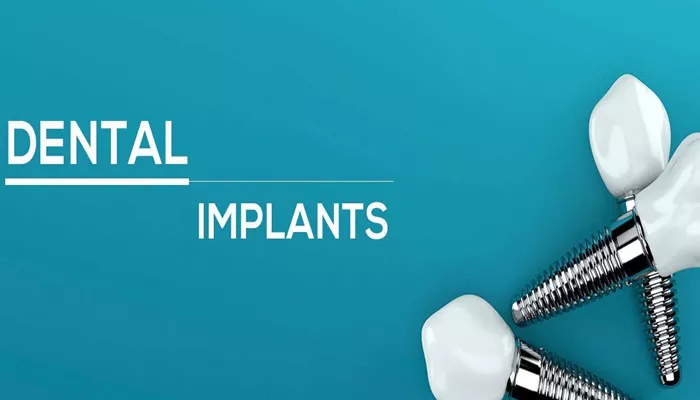Dental implants have become a highly effective and popular solution for replacing missing teeth. They restore function, appearance, and oral health. But how do you know when you actually need dental implants? Recognizing the signs early can help you avoid further complications such as gum inflammation, gum disease, or bone loss. This article will clearly explain the 8 signs that you need dental implants, helping you understand when to seek professional dental care.
8 Signs That You Need Dental Implants
1. Missing One or More Teeth
The most obvious sign that you may need dental implants is missing teeth. Whether you have lost teeth due to injury, decay, or extraction, dental implants provide a strong and long-lasting replacement. Unlike dentures or bridges, implants are anchored directly into the jawbone, offering stability and preserving the surrounding bone.
Missing teeth not only affect your smile but also impact chewing and speaking. Over time, gaps left by missing teeth can cause shifting of remaining teeth, leading to bite problems and uneven wear. If you have one or more missing teeth, dental implants are often the recommended treatment to restore full function and appearance.
2. Difficulty Chewing or Biting
If you notice difficulty chewing your favorite foods or pain when biting down, this could be a sign that your natural teeth are compromised or missing. When teeth are damaged or lost, your bite force becomes uneven, making it harder to eat certain foods. This difficulty often leads people to avoid certain nutritious foods, which can affect overall health.
Dental implants function like natural teeth and allow you to chew and bite without discomfort. If chewing problems are persistent, visiting your dentist to discuss dental implants might be necessary.
3. Gum Inflammation and Persistent Gum Disease
Gum inflammation and persistent gum disease (periodontal disease) are major signs of poor oral health that might require dental implants. Gum disease damages the tissues that support your teeth, and in severe cases, leads to tooth loss.
Symptoms include swollen, red, or bleeding gums, bad breath, and even pus around the teeth. When gum disease reaches an advanced stage, natural teeth may become loose and fall out. Dental implants can replace lost teeth and help prevent further deterioration of your jawbone and gums. However, it’s important to treat any active gum disease before implant placement.
4. Loose or Unstable Teeth
If you have natural teeth that feel loose or unstable, it could be due to advanced gum disease or trauma. Loose teeth often signal damage to the supporting bone and gums. This instability causes discomfort when eating or speaking and increases the risk of tooth loss.
In many cases, teeth that are too loose to be saved must be removed and replaced with dental implants. Implants provide a stable and secure foundation, improving oral function and preventing further bone loss.
5. Jawbone Shrinkage or Bone Loss
When teeth are missing, the jawbone can begin to shrink due to lack of stimulation. Teeth roots normally stimulate the bone when chewing. Without this stimulation, bone loss (resorption) occurs, causing your jaw to weaken and change shape.
Bone loss can affect your facial appearance, leading to sagging cheeks or a sunken look. Dental implants are the only tooth replacement option that helps prevent jawbone shrinkage because they act like natural tooth roots. If your dentist notices bone loss in your X-rays, implants may be necessary to restore and maintain your jaw health.
6. Difficulty Speaking Clearly
Missing teeth or ill-fitting dentures can cause speech difficulties. You might notice lisping, slurring, or trouble pronouncing certain words. These problems happen because teeth help position your tongue and lips when speaking.
Dental implants restore your mouth’s structure and provide a natural feeling while speaking. If you experience speech problems related to missing or damaged teeth, dental implants could be the right solution for you.
7. Chronic Jaw Pain or TMJ Issues
Chronic jaw pain or temporomandibular joint (TMJ) disorders can sometimes be linked to missing teeth or an uneven bite. When your bite is off, the jaw joints and muscles strain to compensate, causing pain, clicking sounds, or headaches.
Dental implants can restore proper bite alignment and reduce stress on the jaw joints. If you suffer from unexplained jaw pain or TMJ symptoms along with missing or damaged teeth, implants may improve your condition.
8. Dissatisfaction with Dentures
Many people use dentures to replace missing teeth, but they often come with drawbacks such as slipping, discomfort, and difficulty eating certain foods. If you are unhappy with your dentures and want a more natural, secure solution, dental implants are an excellent alternative.
Implants provide fixed teeth that feel and function like natural teeth, improving your confidence and quality of life. If you experience constant denture problems, talk to your dentist about whether dental implants might be better for you.
Conclusion
Dental implants offer a reliable and effective way to replace missing or damaged teeth and improve overall oral health. Recognizing the 8 signs that you need dental implants — including missing teeth, chewing difficulties, gum inflammation, loose teeth, bone loss, speech issues, jaw pain, and dissatisfaction with dentures — can guide you toward timely dental care.
If you notice any of these symptoms, it is important to consult a dental professional. Early treatment can prevent further complications such as advanced gum disease or bone loss. Dental implants not only restore your smile but also help maintain healthy gums and jawbone for years to come.

